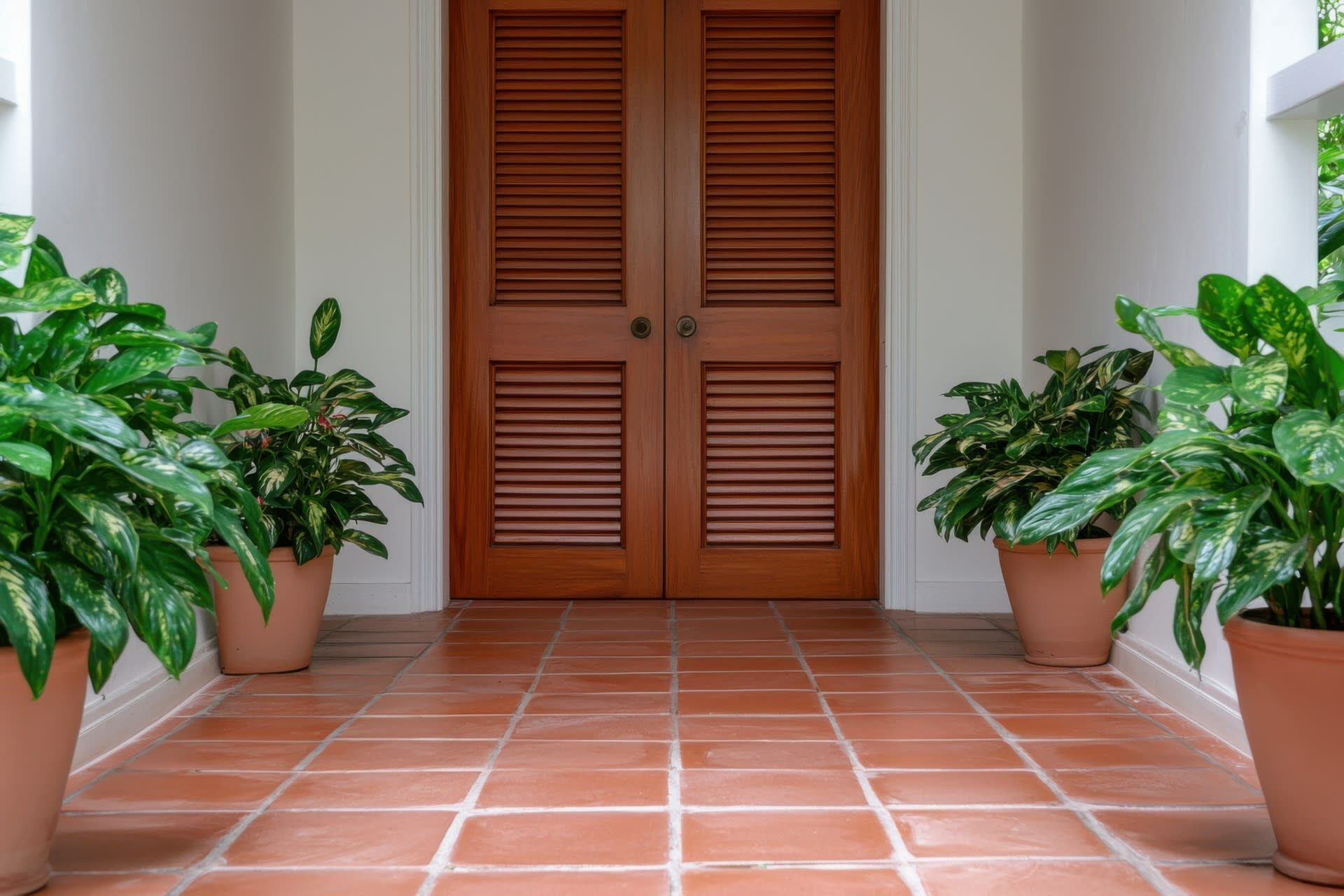- Flooring Store
- |
- Remodeling
- |
- Tile Grout
- |
- Tile Store
Exploring Different Tile Grout Options: Which is Best for Your Tile Flooring?
August 5, 2025

When planning a new tile flooring project, most homeowners tend to focus on the tile style, size, and color. But there’s one essential detail that often goes overlooked until installation day: grout. While grout may seem like a small piece of the puzzle, it plays a critical role in both the durability and the overall look of a floor. Choosing the right grout option can enhance the beauty of the tiles, reduce maintenance headaches, and ensure the longevity of the floor.
Why grout choice matters
Grout is more than just a filler between tiles. It stabilizes the flooring, prevents moisture from seeping underneath, and gives tiles that polished, finished appearance. The type of grout selected can affect stain resistance, cleaning effort, and even how bold or subtle the tile design looks. From sanded and unsanded to epoxy and urethane, each type of grout comes with its unique strengths and considerations.
Sanded grout: the reliable standard
Sanded grout is the most common choice for tile flooring, especially with larger grout joints (⅛ inch or wider). It’s mixed with fine sand to prevent shrinking and cracking during the drying process, making it strong and durable. Because of its texture, sanded grout works best for high-traffic areas like kitchens, hallways, and entryways. On the downside, it can be harder to clean compared to smoother options and may scratch delicate tiles like marble or glass.
Pros
-
Affordable and widely available
-
Excellent for larger grout lines
-
Durable in high-traffic areas
Cons
-
Can be rough to the touch
-
Not suitable for very thin grout lines
-
May scratch polished or soft tiles
Unsanded grout: sleek and smooth
Unsanded grout is made without sand, giving it a smoother texture. It’s ideal for narrower grout joints (less than ⅛ inch) and delicate tiles that might be scratched by sanded grout. Unsanded grout also provides a sleek finish, making it popular in bathrooms, showers, and for wall tiling. However, it’s not as strong in wider joints and is more prone to shrinking or cracking over time.
Pros
-
Smooth finish for thin grout lines
-
Gentle on delicate tile surfaces
-
Easier to spread into tight joints
Cons
-
Not ideal for larger grout joints
-
More prone to shrinkage
-
Requires sealing for better stain resistance
Epoxy grout: the high-performance option
Epoxy grout is a premium choice known for its durability, stain resistance, and ability to withstand heavy use. Made with resins and a hardener, it’s waterproof and resistant to mold, making it perfect for kitchens, bathrooms, and outdoor areas. Epoxy grout also comes in a wide range of colors and can create a seamless look with tiles. The main drawback is that it’s more expensive and challenging to apply, often requiring professional installation.
Pros
-
Highly resistant to stains, moisture, and chemicals
-
Perfect for wet or high-traffic areas
-
Long-lasting with minimal maintenance
Cons
-
Higher cost than traditional grouts
-
Can be tricky to work with during installation
-
Professional help may be needed
Urethane grout: flexible and user-friendly
Urethane grout is another modern option that offers flexibility, easy application, and strong stain resistance. Unlike epoxy, it doesn’t require mixing and can be applied straight from the bucket. Its flexibility helps it absorb minor tile movement, reducing the risk of cracks. It’s also color-consistent and doesn’t require sealing. However, it does take longer to cure and comes with a higher price tag.
Pros
-
Pre-mixed and easy to use
-
Excellent stain resistance
-
Flexible and less likely to crack
Cons
-
More expensive than sanded or unsanded grout
-
Longer curing time
-
Limited availability compared to other options
Choosing the right grout for your flooring
The best grout for a flooring project depends on the space, tile material, and personal preferences. For high-traffic spaces, sanded grout remains a reliable choice. For delicate tiles or sleek designs, unsanded grout provides a smooth finish. For areas prone to moisture or stains, epoxy or urethane grout offers superior performance and longevity. The key is to balance function, aesthetics, and maintenance needs when making the final decision.
Grout may not be the star of a flooring project, but it sets the stage for how the tiles look and perform over time. With so many options available, taking the time to choose the right grout ensures a floor that is as practical as it is beautiful.
From floor to finish, we’ve got you covered
Since 1974, American Floor & Home has been Oahu’s trusted flooring experts, providing in-house installation and full-service remodeling. Whether choosing tile, grout, or planning a complete kitchen or bath renovation, our team is here to guide every step. Visit us in Honolulu or Kapolei, or explore our shop-at-home service to get started on creating the home of your dreams.


